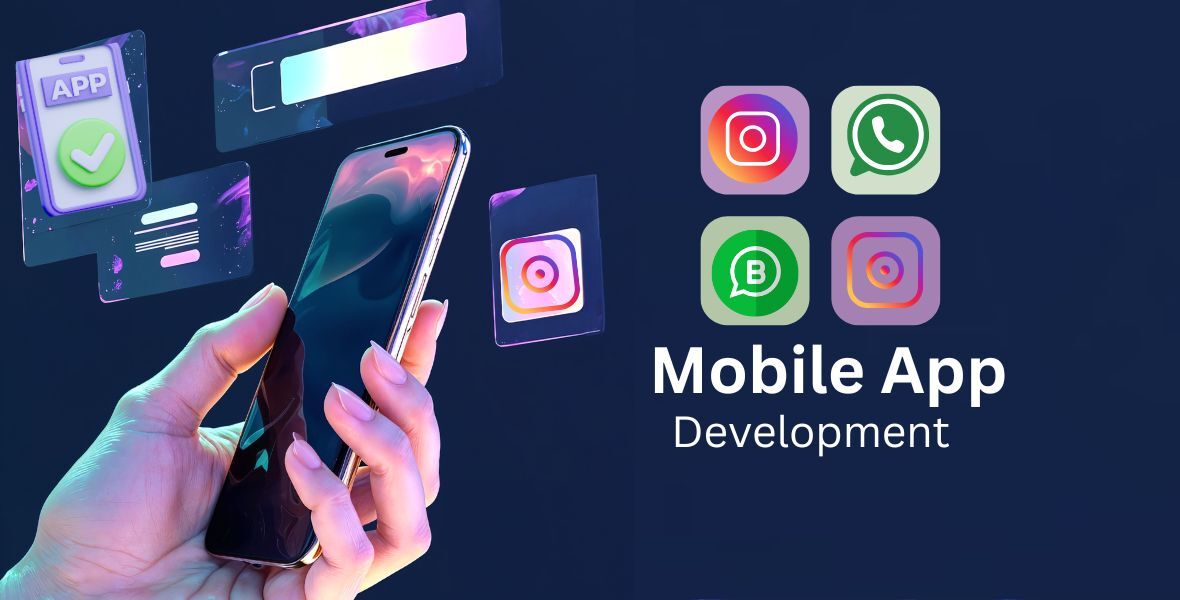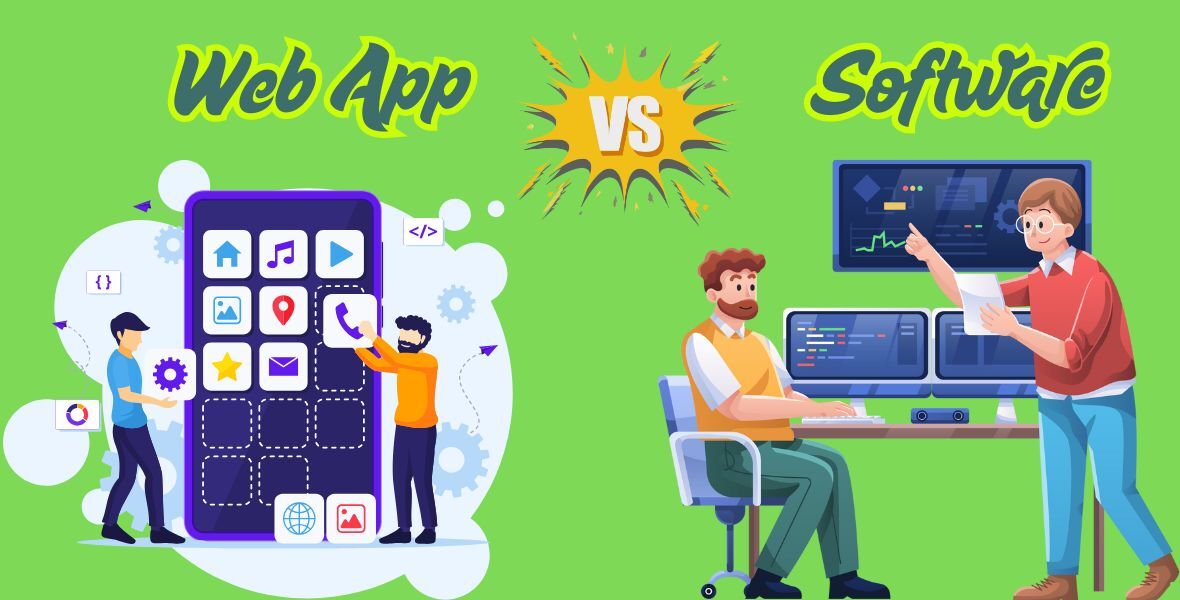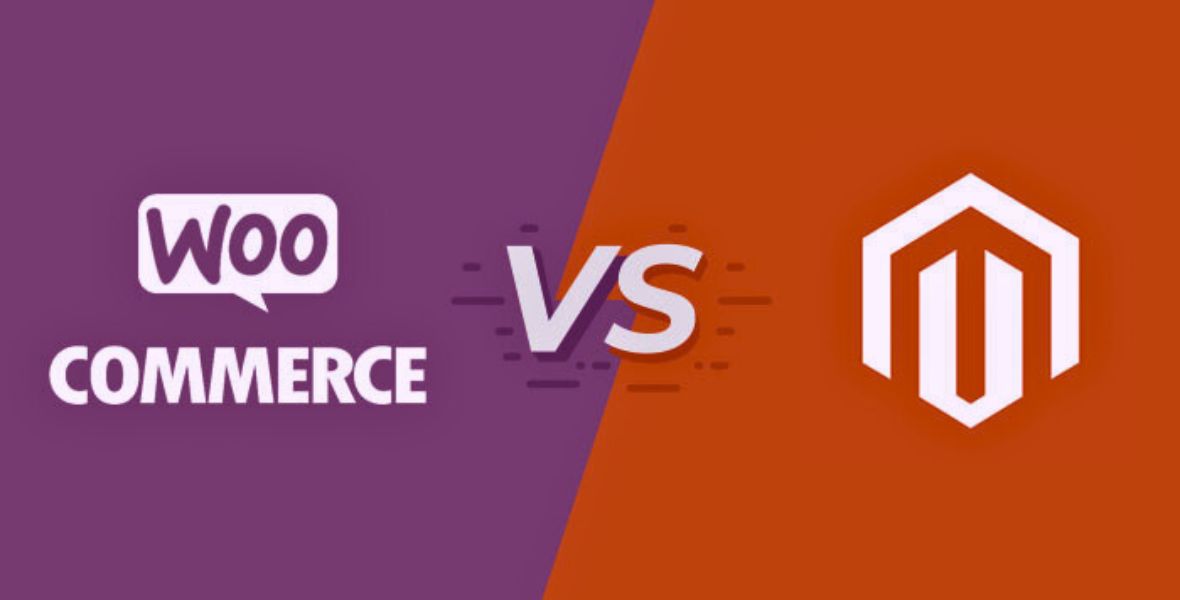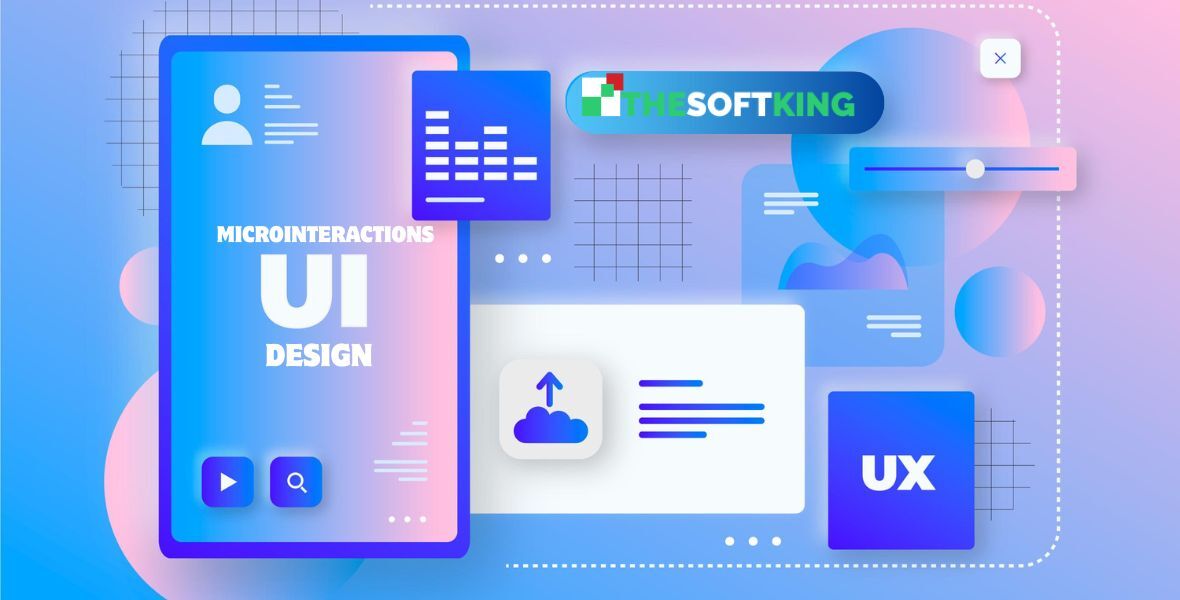Native vs Hybrid App: Which is Best for Your Mobile Project?
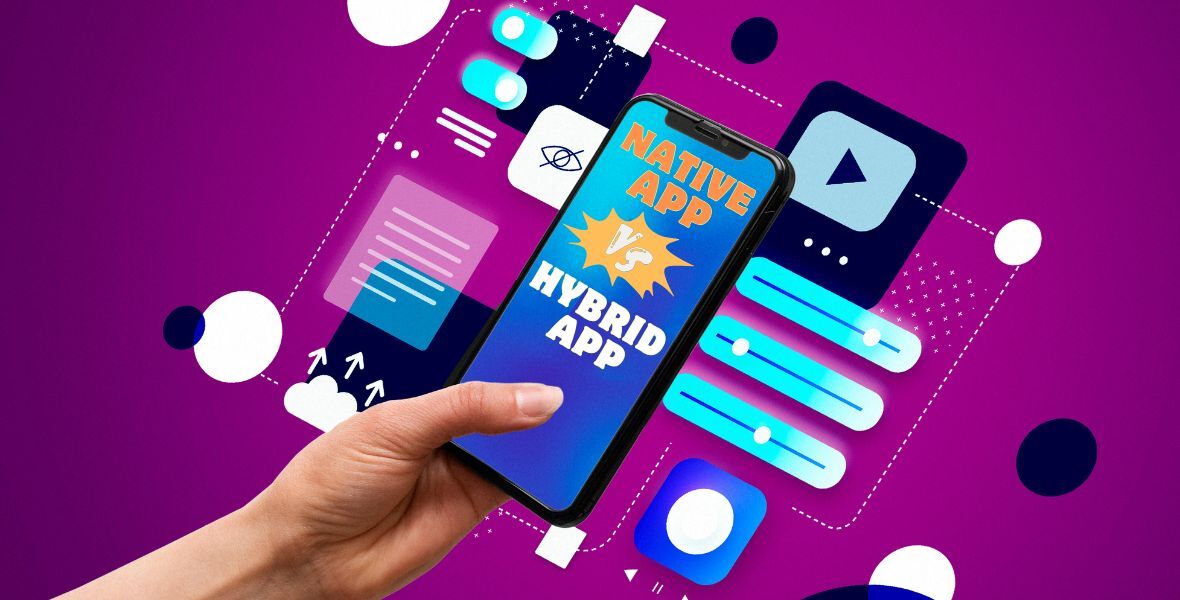
Introduction
Mobile apps shape how we interact with technology daily. You use them for shopping, socializing, or managing tasks. But when building one, a big question arises: should you go for a native or hybrid app? This choice impacts performance, cost, and user experience.I’ll break down the native vs hybrid app debate to help you decide. Native apps offer top performance, while hybrid apps save time and money. Each has strengths and trade-offs, and I’ll clarify them.
With years of experience in mobile app development, I’ve seen both approaches succeed and fail. This article explains their differences, costs, and use cases. You’ll get practical insights, including Reddit community perspectives, to make an informed choice for your project.
What Defines a Native App?
Let’s start with native apps. These are built specifically for one platform, like iOS or Android, using tools like Swift for iOS or Kotlin for Android. They tap directly into the device’s hardware and operating system.Why Native Apps Feel So Smooth
Native apps deliver fast, responsive performance. They access device features likeGPS, camera, or push notifications seamlessly. This creates a polished user experience. For example, apps like Spotify or Instagram are native, offering smooth scrolling and instant responses.The Cost of Building Native
Developing native apps takes time and money. You need separate codebases for iOS and Android. This doubles the work, increasing costs. Businesses often hire specialized developers, which adds to the budget.When Native Apps Shine
Native apps suit complex projects. Think gaming apps or those needing heavy device integration, like augmented reality tools. They ensure top performance and reliability, critical for demanding users.How Hybrid Apps Work
Now, let’s explore hybrid apps. These run on multiple platforms using a single codebase, built with tools like React Native or Flutter. They blend web technologies with native capabilities, saving development time.The Speed of Hybrid Development
Hybrid apps cut development time significantly. One codebase works across iOS and Android, reducing effort. This makes them ideal for startups or businesses needing quick launches. THESOFTKING, for instance, builds efficient hybrid solutions for clients on tight schedules.Balancing Performance and Convenience
Hybrid apps don’t always match native’s speed. They rely on web views, which can slow performance slightly. However, modern frameworks like Flutter improve this gap, making hybrid apps feel closer to native.Where Hybrid Apps Fit Best
Hybrid apps work for simpler projects. Think e-commerce or content-driven apps like news platforms. They’re cost-effective and easier to maintain, especially for businesses targeting multiple platforms.Comparing Costs in Mobile App Development
Money matters when choosing between native and hybrid apps. Development costs vary based on complexity, team size, and platform needs. Let’s dive into the financial side of this decision.Native App Development Costs
Native apps require separate teams for iOS and Android. This means higher costs for developers, testing, and maintenance. A complex native app can cost $50,000 to $100,000 per platform.Hybrid App Development Costs
Hybrid apps use one codebase, slashing costs. A single team handles both platforms, often cutting budgets by 30-50%. For small businesses, this makes hybrid app development vs native more appealing.Long-Term Maintenance Expenses
Maintenance differs too. Native apps need updates for each platform, doubling the effort. Hybrid apps update once, saving time. However, hybrid apps may face compatibility issues with new OS versions.Hidden Costs to Watch
Don’t overlook hidden costs. Native apps may need frequent updates to match OS changes. Hybrid apps might require extra optimization for performance, especially for complex features.Performance in Native vs Hybrid Apps
Performance is a key factor in the native vs hybrid mobile app debate. Users expect fast, smooth apps. Let’s compare how each approach handles this demand.Native Apps and Speed
Native apps excel in performance. They’re optimized for specific platforms, ensuring quick load times and fluid interactions. For example, a native mobile app vs a hybrid mobile app feels snappier in animations.Hybrid Apps and Performance Trade-Offs
Hybrid apps can lag slightly due to web-based rendering. However, tools like Ionic or Flutter have narrowed this gap. For most users, the difference is barely noticeable in simple apps.Device Feature Integration
Native apps access device features directly, like cameras or accelerometers. Hybrid apps use plugins, which can introduce slight delays. Still, modern frameworks make this integration smoother than ever.User Expectations and Experience
Users demand seamless experiences. Native apps often meet this better for complex tasks. Hybrid apps suffice for basic apps, but heavy features may expose their limitations.Development Time for Native vs Hybrid
Time-to-market influences app success. Businesses want apps launched quickly. Let’s see how native and hybrid approaches compare in development speed.Native App Development Timeline
Building native apps takes longer. Separate iOS and Android versions mean double the coding. A typical native project spans 6-12 months, depending on complexity.Hybrid App Development Speed
Hybrid apps shine here. One codebase cuts development time significantly. A hybrid app can launch in 3-6 months, ideal for businesses needing fast deployment.Iteration and Updates
Hybrid apps simplify updates. One change applies across platforms, speeding up iterations. Native apps require updates for each platform, slowing the process.Real-World Examples
Reddit users often highlight hybrid apps for quick MVPs (Minimum Viable Products). One developer shared how their hybrid e-commerce app launched in half the time of a native version, saving crucial resources.Scalability in Mobile App Development
As your app grows, scalability matters. Can your app handle more users or features? Let’s compare how native and hybrid apps scale over time.Native Apps and Scalability
Native apps scale well for complex features. Their direct access to device resources supports heavy workloads, like real-time data processing or 3D graphics.Hybrid Apps and Growth
Hybrid apps scale decently for simpler apps. Adding complex features can strain performance, requiring optimization. Still, they handle moderate growth well for content-focused apps.Future-Proofing Your App
Native apps adapt better to new OS features, ensuring longevity. Hybrid apps may face delays adopting cutting-edge features due to framework dependencies.Reddit Insights on Scalability
A Reddit thread on hybrid vs native app development noted native’s edge for long-term projects. One user mentioned their native app handled 100,000 users seamlessly, while hybrid struggled beyond 50,000.User Experience in Native vs Hybrid Apps
User experience (UX) drives app retention. A clunky app loses users fast. Let’s explore how native and hybrid apps impact UX.Native Apps and Polished UX
Native apps offer superior UX. They align with platform guidelines, ensuring familiar navigation. For instance, iOS native apps follow Apple’s Human InterfaceGuidelines perfectly.Hybrid Apps and UX Consistency
Hybrid apps provide consistent UX across platforms. However, they may not feel as “native” to users. Subtle differences in transitions or gestures can affect satisfaction.Customization and Branding
Native apps allow deep customization, matching your brand perfectly. Hybrid apps offer decent customization but may face limitations with complex UI designs.User Feedback from Reddit
Reddit developers often praise native apps for UX. One user shared how their native fitness app felt intuitive, while a hybrid version had clunky animations, frustrating users.Cross-Platform Compatibility
Reaching users on multiple platforms is crucial. Let’s examine how native and hybrid apps handle cross-platform needs.Native Apps and Platform Limits
Native apps are platform-specific. You need separate apps for iOS and Android, increasing effort. This ensures perfect integration but limits quick multi-platform launches.Hybrid Apps and Broad Reach
Hybrid apps excel in cross-platform compatibility. One codebase runs everywhere, from iOS to Android. This makes them ideal for businesses targeting diverse users.Web App vs Hybrid vs Native
Web apps run in browsers, lacking native features. Hybrid apps bridge this gap, offering app-like experiences with web tech. Native apps remain the gold standard for platform-specific performance.Practical Use Cases
THESOFTKING often recommends hybrid apps for startups needing iOS and Android coverage fast. Their hybrid solutions ensure broad reach without sacrificing core functionality.Security in Mobile Apps
Security keeps user data safe. Both native and hybrid apps handle security differently. Let’s break down their approaches.Native Apps and Security
Native apps offer strong security. They integrate tightly with platform-specific features like encryption or secure storage, reducing vulnerabilities.Hybrid Apps and Security Risks
Hybrid apps rely on web technologies, which can introduce risks. However, modern frameworks include security plugins to mitigate threats effectively.Data Protection Considerations
Native apps excel in protecting sensitive data, like payment details. Hybrid apps need extra care to ensure robust encryption across platforms.Industry Standards
Both approaches can meet industry standards like GDPR. Native apps often have an edge for highly regulated industries like finance or healthcare.Tools and Frameworks for Development
The tools you choose shape your app’s success. Let’s look at popular options for native and hybrid app development.Native Development Tools
For iOS, Swift and Xcode dominate. Android uses Kotlin or Java with Android Studio. These tools offer deep platform integration for top performance.Hybrid Development Frameworks
React Native, Flutter, and Ionic lead hybrid app dev. Flutter’s single codebase delivers near-native performance, making it a favorite for cross-platform projects.Choosing the Right Tool
Your choice depends on goals. Native tools suit complex apps. Hybrid frameworks like Flutter work for faster, cost-effective development.Developer Community Insights
Reddit developers often debate Flutter vs React Native. One user praised Flutter for its speed, while another noted React Native’s larger community for support.App Store Deployment Challenges
Getting your app on stores like Google Play or Apple’s App Store involves hurdles. Let’s compare native and hybrid app deployment.Native App Store Requirements
Native apps face strict guidelines. Apple’s App Store demands adherence to specific UI and performance standards, which can delay approvals.Hybrid App Deployment
Hybrid apps face similar scrutiny but benefit from one codebase. Updates roll out faster, though compatibility issues may arise.Approval Timelines
Native apps often take longer to approve due to platform-specific checks. Hybrid apps streamline updates, speeding up store approvals.Tips on Deployment
A Reddit user shared how their hybrid app faced fewer rejections by reusing code, unlike their native app, which needed platform-specific tweaks.Real-World Examples of Native and Hybrid Apps
Examples clarify the native vs hybrid debate. Let’s look at apps using each approach to understand their strengths.Native App Examples
Shopify and Pokémon GO are native. They leverage device hardware for smooth audio streaming or AR gameplay, delivering exceptional performance.Hybrid App Examples
Instagram initially used a hybrid approach with React Native. It allowed quick cross-platform launches while maintaining decent performance for its features.Industry Trends
Many startups lean toward hybrid apps for speed. Established companies like Uber use native for complex features, ensuring top-tier performance.Lessons from Examples
Hybrid apps suit rapid launches, while native apps excel for feature-heavy projects. Your choice depends on your app’s goals and audience.Testing and Debugging Apps
Testing ensures your app works flawlessly. Native and hybrid apps require different testing approaches. Let’s explore them.Testing Native Apps
Native apps need platform-specific testing. Tools like XCTest for iOS or Espresso for Android ensure each version performs perfectly.Testing Hybrid Apps
Hybrid apps test across platforms with one codebase. Tools like Appium simplify this, though cross-platform bugs can complicate debugging.Debugging Challenges
Native apps debug easier due to platform-specific tools. Hybrid apps may face issues with web-based components, requiring extra effort.Testing Insights
A Reddit developer noted hybrid apps save testing time but warned of inconsistent bugs across devices, unlike native’s predictable debugging.Community and Support for Developers
Developer support shapes your app’s success. Let’s compare the communities behind native and hybrid development.Native Development Communities
iOS and Android have massive communities. Apple’s WWDC and Android’s developer forums offer extensive resources for native developers.Hybrid Development Communities
Flutter and React Native boast active communities. GitHub issues and Stack Overflow provide quick solutions for hybrid app challenges.Access to Resources
Native developers access platform-specific documentation. Hybrid developers rely on framework communities, which are robust but less platform-focused.Reddit Community Feedback
Reddit users highlight Flutter’s growing community as a hybrid advantage. Native developers, however, benefit from Apple and Google’s official support.Future Trends in Mobile App Development
The mobile app landscape evolves fast. Let’s explore trends shaping the native vs hybrid app debate.Native App Innovations
Native apps embrace AI and AR. Apple’s CoreML and Android’s ML Kit enable advanced features like real-time image recognition.Hybrid App Advancements
Hybrid frameworks improve performance yearly. Flutter’s updates make hybrid apps rival native in speed and functionality.Emerging Technologies
5G and edge computing boost both approaches. Native apps leverage these for real-time app, while hybrid apps benefit from faster web rendering.What Reddit Predicts
Reddit discussions suggest hybrid apps will dominate for startups due to cost. Native apps will remain key for high-performance niches like gaming.Making the Right Choice for Your Project
Choosing between native and hybrid apps feels overwhelming. Let’s simplify it with practical steps to guide your decision.Define Your App’s Goals
Start with your app’s purpose. Need high performance for gaming? Go native. Want a quicke-commerce app? Hybrid works.Consider Your Budget
Native apps cost more but deliver premium performance. Hybrid apps save money and time, ideal for smaller budgets.Evaluate Your Timeline
Tight deadlines favor hybrid apps. If time isn’t a constraint, native offers long-term reliability and performance.Assess User Needs
Prioritize user experience. Native apps feel smoother, while hybrid apps ensure broader reach. Align your choice with user expectations.FAQs on Native vs Hybrid Apps
What is the difference between native and hybrid apps?
Native apps are built for one platform, offering top performance. Hybrid apps use one codebase for multiple platforms, saving time and cost.Which is faster to develop, native or hybrid apps?
Hybrid apps develop faster due to a single codebase. Native apps take longer, requiring separate iOS and Android versions.Are native apps more secure than hybrid apps?
Native apps offer stronger security through platform integration. Hybrid apps need extra measures to match native’s security level.Can hybrid apps match native app performance?
Modern hybrid frameworks like Flutter come close to native performance, but native apps still lead for complex features.Which is better for startups, native or hybrid apps?
Hybrid apps suit startups for cost and speed. Native apps work for startups needing high performance or complex features.Build Your App with THESOFTKING
Your app idea deserves the right approach. Whether you choose native or hybrid, THESOFTKING delivers tailored solutions to bring your vision to life.Contact us to start building today. Let’s create an app that stands out and meets your goals!
